Mozambique - Escalating violence and displacement (DG ECHO, UN OCHA, IOM) (ECHO Daily Flash of 1 ...
New Omicron subvariants entered through Cabo Delgado and Nampula in November – A Verdade
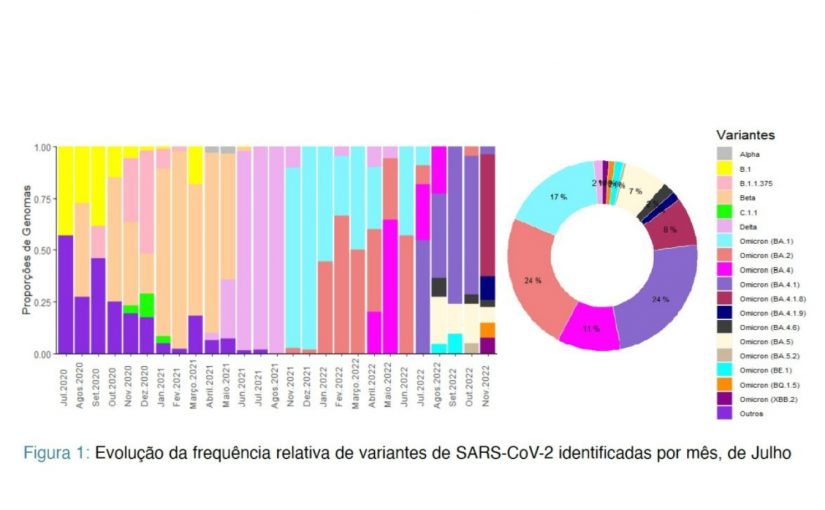
A Verdade reported on Monday (10) that “the new Omicron sub-variant XBB.1.5, nicknamed ‘Kraken’ because it is more transmissible and more difficult to neutralise by antibodies, and which is driving a new wave of the Covid-19 pandemic in China, the US and Europe, has been in circulation in Mozambique since last November, having been introduced into the country via the provinces of Cabo Delgado and Nampula”.
#Ómicron XBB.1.5 apelidada Kraken por ser mais transmissível e mais difícil de neutralizar que está a impulsionar uma nova vaga #covid-19 está em circulação em #Moçambique desde Novembro, introduzida por Cabo Delgado e Nampula tal como 1º vírus SARS-CoV-2 https://t.co/OSI4xoe451 pic.twitter.com/JBpzL3gr9Q
— Jornal a Verdade (@verdademz) January 10, 2023
The National Institute of Health (INS) reveals in its most recent SARS-CoV-2 Genomic Surveillance Bulletin that “the epidemic in Mozambique continues to be dominated by the Omicron variant, initially identified in November 2021”, and that sub-variants, which are causing new waves of Covid-19 around the world, are already circulating in the country: “The [Omicron] sub-lineages BQ.1.5 and XBB.2 appear for the first time in November, 2022, in the provinces of Nampula and Cabo Delgado, respectively”.
It should be recalled that the INS found that the new coronavirus was introduced into Cabo Delgado province in 2020 by foreign citizens at the time working on the Rovuma Basin natural gas projects.
READ: South Africa has its first case of most transmissible Covid variant
On the 4th of January, the World Health Organization (WHO) warned about the increase in cases of the Omicron sub-variant XBB.1.5 in the Northern Hemisphere. XBB.1.5 a sub-lineage of the SARS-CoV-2 lineage XBB, a “recombinant” variant that spawned from two different BA.2 variants.” XBB.1.5 is on the increase in Europe and the United States of America, and has now been identified in more than 25 countries. WHO is following [it] closely,” World Health Organisation Chief Tedros Adhanom Ghebreyesus said.
Virologists believe that the “parent” sub-variant of XBB.1.5 probably emerged in Asia, where it caused a resurgence of cases in the third quarter of 2022, and that it is more resistant to both the vaccine and immunity resulting from previous infections.
The United States Center for Disease Control (CDC) warns that the sub-variant “may be more transmissible than other variants”, but is still unable to say if it has “more serious” effects or indicate whether it is more difficult to neutralise by antibodies; that is why they nicknamed it ‘Kraken’, after the sea monster from Scandinavian mythology.
READ: WHO urges travellers to wear masks as new COVID variant spreads
Meanwhile, in Mozambique, the most predominant Omicron sub-variant continues to be BA.4.1, “with a relative frequency of 28.5 percent, from July to November”. However, the INS also notes “a continuous circulation of the BA.5 variant in the provinces of Niassa, Sofala and Inhambane between the months of July and October with relative frequencies of 0.5 percent, 7.7 percent and 0.5 percent, respectively”.
READ: SA sees no need for new Covid restrictions for now – health minister
The latest SARS-CoV-2 Genomic Surveillance Bulletin issued by Mozambique’s National Institute of Health also indicates that, “on the other hand, in relation to the BA.2 variant, initially identified in Manica in December 2021, and which spread across all provinces with a relative frequency of around 37 percent until June, it is observed its reduction in the relative frequencies for the month of July having been identified in the provinces of Cabo Delgado (0.5 percent), Nampula (2.7 percent), Niassa (1.1 percent), Zambezia (3.1 percent percent), Tete (1.1 percent), Inhambane (0.5 percent) and Maputo (1.1 percent)”.
READ: Mozambique: Covid cases rise – O País
By Adérito Caldeira


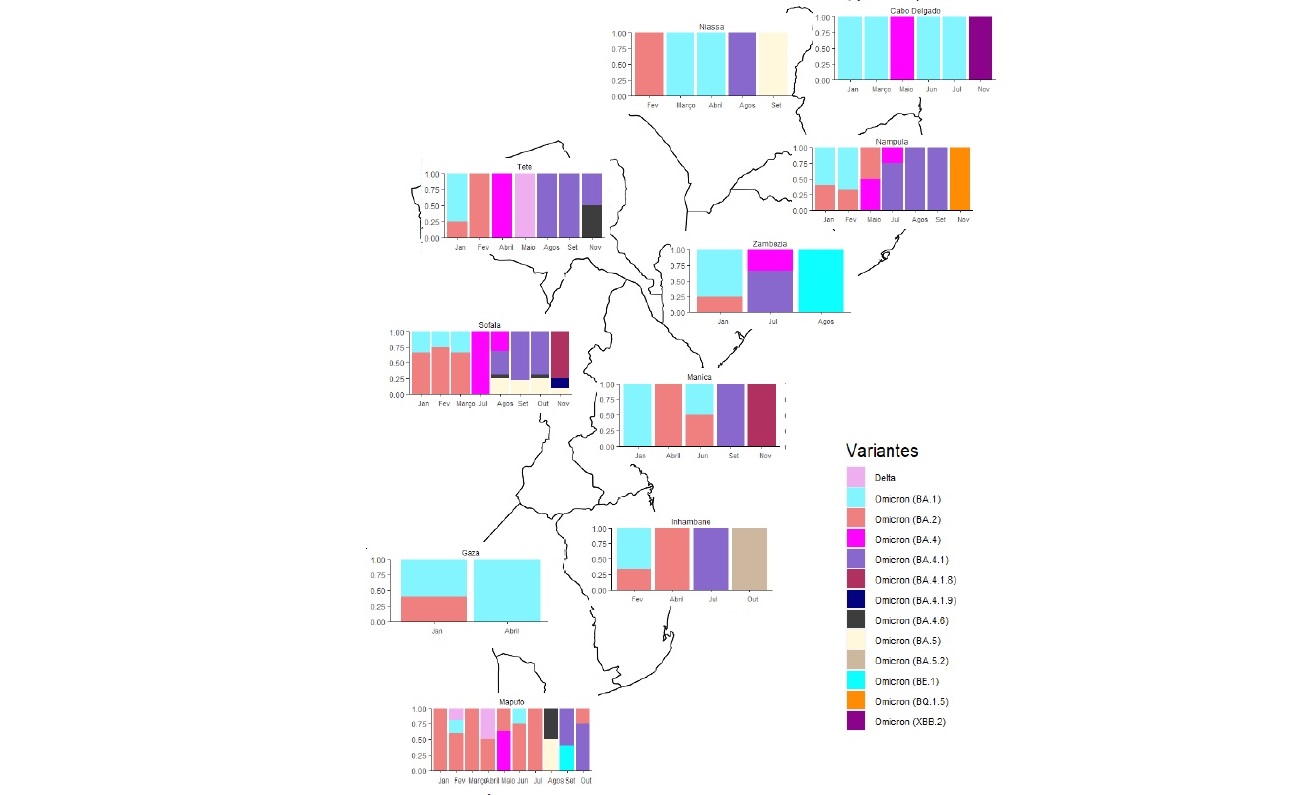
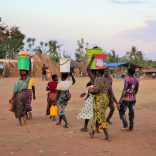

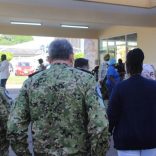
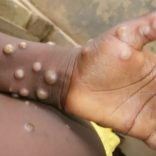






Leave a Reply
Be the First to Comment!
You must be logged in to post a comment.
You must be logged in to post a comment.